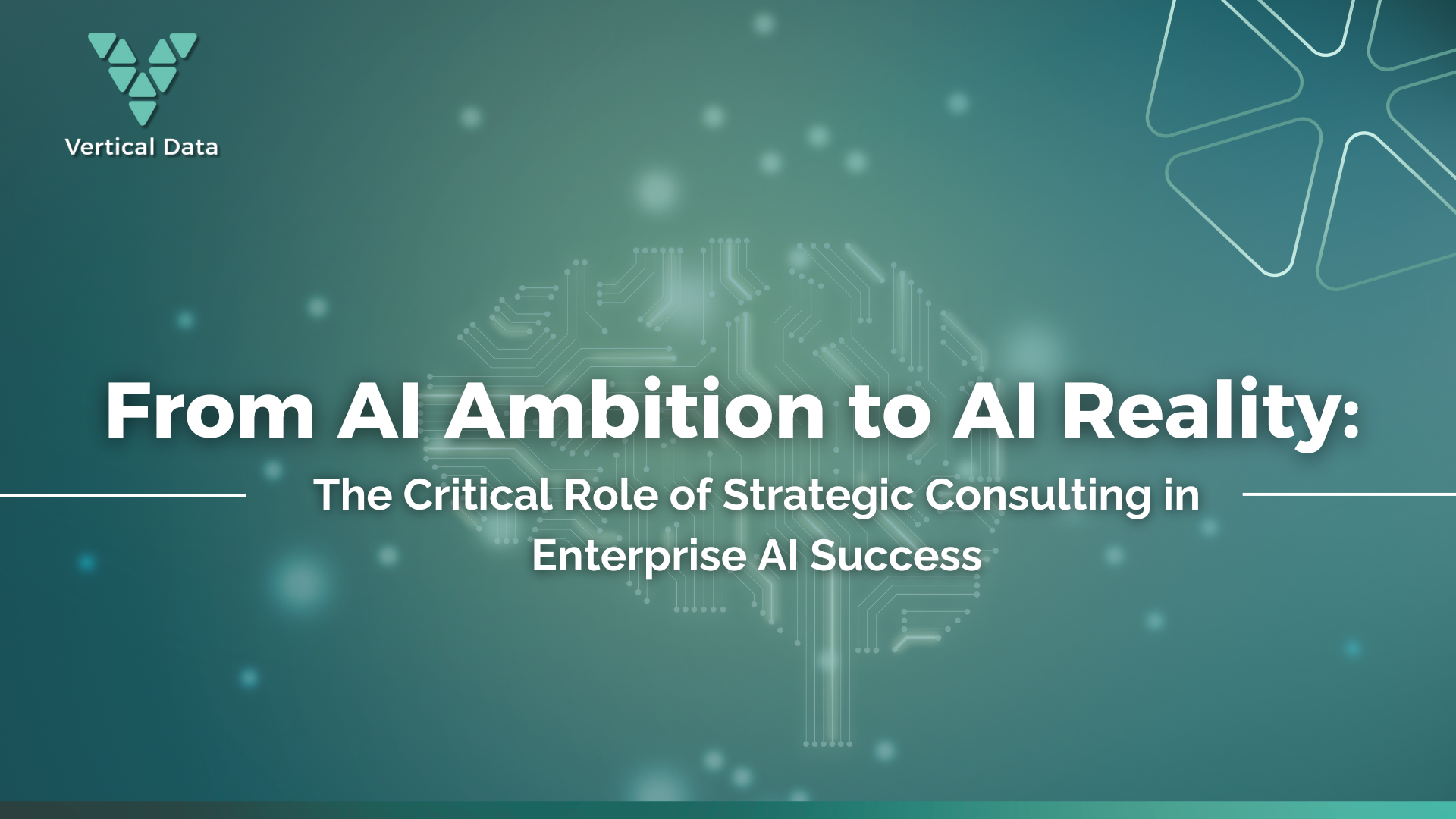The boardroom presentations are compelling. Charts show exponential growth projections, competitive advantages, and transformational outcomes. Executive teams leave energized about their AI future, ready to join the ranks of digitally transformed enterprises. Yet six months later, many find themselves asking: why isn’t our AI initiative delivering the promised results?
The statistics tell a stark story. According to recent industry research, between 80-85% of AI projects fail to meet their expected outcomes, a failure rate twice as high as traditional IT projects. Even more concerning, 74% of companies struggle to achieve and scale value from their AI initiatives, despite significant investments in technology and talent.
This gap between AI ambition and AI reality isn’t just a technology problem, it’s a strategy problem. And increasingly, organizations are discovering that bridging this gap requires more than cutting-edge algorithms or powerful computing infrastructure. It requires strategic consulting that transforms good intentions into measurable business outcomes.
The Hidden Complexity of AI Success
The allure of AI often lies in its apparent simplicity. Install the software, feed it data, and watch the magic happen. This perception, however, masks the intricate web of decisions, processes, and organizational changes that determine whether an AI initiative succeeds or becomes another expensive lesson in digital transformation.
Consider a global retailer that invested millions in an AI-powered recommendation engine. The technology worked flawlessly in testing, delivering personalized suggestions with impressive accuracy. Yet after deployment, customer engagement barely improved, and sales remained flat. The problem wasn’t the AI, it was the lack of strategic integration with existing systems and workflows.
This scenario plays out across industries with remarkable consistency. Companies that approach AI as a technology purchase rather than a business transformation consistently underperform those that treat it as a strategic initiative requiring careful planning, change management, and ongoing optimization.
The Strategic Consulting Advantage
Organizations with formal AI strategies report success rates of 80%, compared to just 37% for those without strategic frameworks. This dramatic difference highlights the value of structured, expert-guided approaches to AI implementation.
Strategic AI consulting addresses the fundamental challenges that cause most projects to fail. Rather than starting with technology selection, experienced consultants begin with business objectives, helping organizations identify specific use cases where AI can create measurable value. They conduct comprehensive data audits, ensuring that the foundation for AI success—high-quality, relevant data—exists before any algorithms are deployed.
Perhaps most importantly, strategic consultants help organizations navigate the human side of AI transformation. They develop change management strategies that address employee concerns, create training programs that build internal AI capabilities, and establish governance frameworks that ensure responsible AI deployment.
The ROI of Getting It Right
The financial impact of strategic AI consulting becomes clear when examining successful implementations. Companies that invest 5% or more of their budget in AI initiatives see significantly higher positive returns. In marketing and sales, organizations with strategic AI implementations report sales ROI improvements of 10-20% on average.
BCG’s recent client work demonstrates this potential: their AI-powered sales application achieved 90% user satisfaction and $70 million in potential value. Similarly, Sephora’s strategically implemented AI chatbot transformed customer experience through personalized cosmetic recommendations, directly impacting satisfaction and sales conversion.
These successes share common characteristics: clear business objectives, careful use case selection, robust data strategies, and comprehensive change management. None of these elements emerge naturally from technology deployment, they require strategic planning and expert guidance.
Beyond Technology: Building AI-Ready Organizations
The most successful AI implementations recognize that technology is only one component of transformation. Strategic consulting helps organizations develop the organizational capabilities necessary for sustained AI success.
This includes establishing data governance frameworks that ensure AI systems access high-quality, relevant information. It involves creating cross-functional teams that bridge technical capabilities and business requirements. Most critically, it requires developing internal expertise that can evolve AI initiatives as needs change and technology advances.
Strategic consultants also help organizations avoid common pitfalls that derail AI projects. They provide vendor-neutral guidance, helping companies select solutions based on business fit rather than marketing promises. They establish realistic timelines and success metrics, preventing disappointment from unrealistic expectations.
The Path Forward
As AI technology continues to evolve rapidly, the gap between ambition and reality will widen for organizations that approach AI as purely technical. Companies that will thrive recognize AI implementation as strategic business transformation requiring expert guidance, careful planning, and sustained commitment.
The choice facing enterprise leaders isn’t whether to invest in AI, it’s whether to invest in doing AI right. In a landscape where 85% of projects fail, strategic consulting isn’t a luxury, it’s the difference between success and becoming another cautionary tale.
The future belongs to organizations that can bridge the gap between AI ambition and AI reality. Strategic consulting provides the roadmap for that journey.
